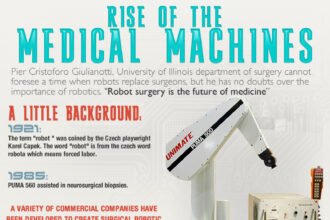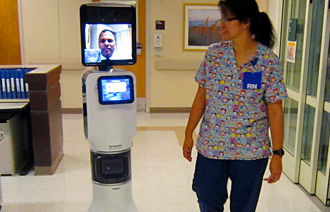The A+PSA test measures levels of prostate specific antigen (PSA) as well as six specific antibodies. Fast positives are also smaller in number, not drastically different but enough to make a difference. The big difference is the overall accuracy which was 79 percent compared to 52 percent with just the PSA test. Recently at UCLA there has been a lot of prostate cancer news and breakthroughs and below are a couple links from the last few months. BD
The A+PSA test measures levels of prostate specific antigen (PSA) as well as six specific antibodies. Fast positives are also smaller in number, not drastically different but enough to make a difference. The big difference is the overall accuracy which was 79 percent compared to 52 percent with just the PSA test. Recently at UCLA there has been a lot of prostate cancer news and breakthroughs and below are a couple links from the last few months. BD
UCLA Discovers A Process That Turns Healthy Cells into Prostate Cancer Cells–Discovery Could Lead To New Treatments
Researchers at UCLA Discover Potential New Treatment for of Prostate Cancer When Other Methodologies Are Not Effective
Press Release:
A new test for prostate cancer that measures levels of prostate specific antigen (PSA) as well as six specific antibodies found in the blood of men with the disease was more sensitive and more specific than the conventional PSA test used today, according to a study by researchers at UCLA’s Jonsson Comprehensive Cancer Center.
The test, called the A+PSA assay, also reduced the rate of false-positives, tests that indicate the presence of cancer when no disease is actually present, said Gang Zeng, an associate professor of urology, a Jonsson Cancer Center researcher and senior author of the study.
“This is a very promising new approach,” Zeng said. “Instead of using just one parameter, PSA, to test for prostate cancer, we use multiple parameters that can be measured in a single reaction.”
The study appears in the May issue of the peer-reviewed Journal of Translational Medicine.
The conventional PSA test for prostate cancer has been used for nearly 30 years and is not specific enough in delineating between malignancies and non-malignant diseases of the prostate, such as benign prostatic hyperplasia (BPH), an enlarging of the prostate common in aging men that increases PSA levels, Zeng said.
The retrospective study used blood taken before surgery from 131 patients from UCLA, Japan and France with biopsy-confirmed prostate cancers and compared results to blood taken from 121 men with either BPH or prostatitis, an infection or inflammation of the prostate that increases PSA levels. The study focused on six specific prostate-cancer associated antigens – NY-ESO-1, SSX-2,4, XAGE-lb, AMACR, p90 and LEDGF – which are found predominantly in patients with prostate cancer and not in benign prostate conditions.
The A+PSA assay looked simultaneously for PSA and antibodies to the six prostate-cancer associated antigens in a single reaction test done in a laboratory, much like PSA is measured. The new test takes about two hours, again similar to the PSA test. The test results in an index of numbers used to diagnose cancer, with a score of 0 to 0.5 indicating a benign result and 0.5 to 1 indicating the presence of prostate cancer, Zeng said.
In the new test, sensitivity – the percentage of men with prostate cancer who were correctly identified as having a malignancy – was 79 percent compared to the 52 percent found in PSA testing. Specificity – the percentage of healthy men who were correctly identified as not having prostate cancer – was 84 percent compared to the 79 percent found when testing for PSA alone.
The rate of false-positives using conventional PSA testing is 21 percent. With the new A+PSA assay, the false-positive rate is 16 percent, Zeng said.
“Science has improved so much since the PSA test was developed and I think it’s time for a more specific and sensitive test to be developed,” Zeng said. “I think we have a test that has great potential to improve the diagnosis of prostate cancer. I knew it would be better than the classic PSA test, but I was amazed at how much better it really was in this study.”
Dr. Allan Pantuck, an associate professor of urology, Jonsson Cancer Center researcher and a study author, said a more specific and sensitive test for prostate cancer would be a welcome addition to the diagnostic tool box.
“While measuring PSA is useful in identifying men with prostate cancer, some men with prostate cancer have a normal PSA level and small elevations in PSA above normal may be produced both by prostate cancer as well as an enlarged but benign prostate,” Pantuck said.
“Combining PSA with a panel of tests that measure an individual man’s anti-cancer immune response may better identify who has prostate cancer and who can be spared an unnecessary invasive biopsy.”
Zeng and his team are working now to adjust and improve the statistical index used in their test to generate the “score.” He’d like to do a prospective study that would include the racial, ethnic and age information for each man who provides blood. The test could perhaps be altered for men over a certain age if the antibody levels found in their blood vary. African-American men may also have varying levels of the six antibodies. There also are additional antibodies that could be added to the assay that may improve both the sensitivity and specificity of the test, Zeng said.
“Different men may have different levels of the six antibodies or different antibodies all together based on their race, age and ethnicity,” Zeng said. “We want as accurate an assay as we can possibly develop.”
Any new prostate cancer test would have to be approved by the U.S. Food & Drug Administration.
The study was funded in part by the Prevent Cancer Foundation, the National Institutes of Health and the National Cancer Institute Early Detection Research Network.
UCLA’s Jonsson Comprehensive Cancer Center has more than 240 researchers and clinicians engaged in disease research, prevention, detection, control, treatment and education. One of the nation’s largest comprehensive cancer centers, the Jonsson center is dedicated to promoting research and translating basic science into leading-edge clinical studies. In July 2010, the Jonsson Cancer Center was named among the top 10 cancer centers nationwide by U.S. News & World Report, a ranking it has held for 10 of the last 11 years. For more information on the Jonsson Cancer Center, visit our website at http://www.cancer.ucla.edu.







